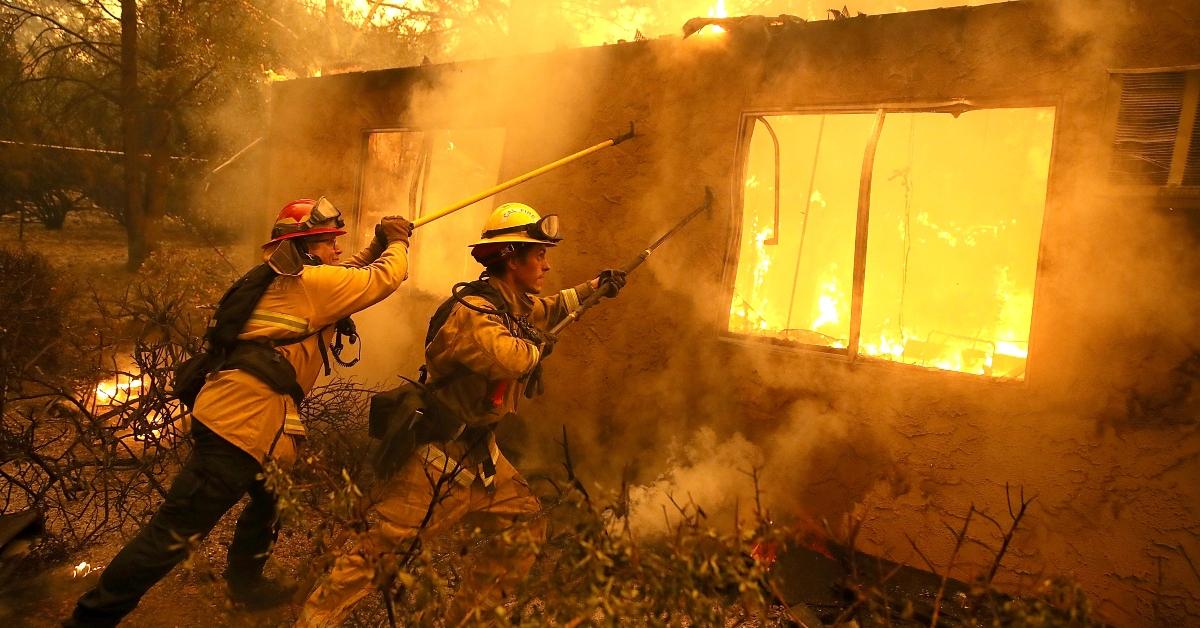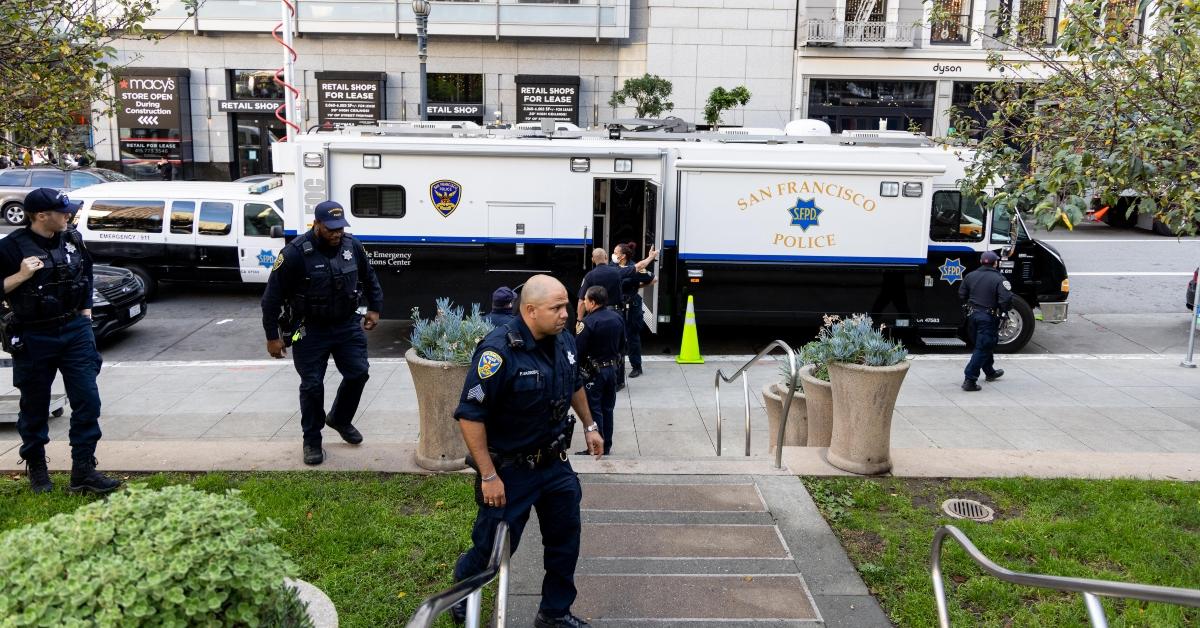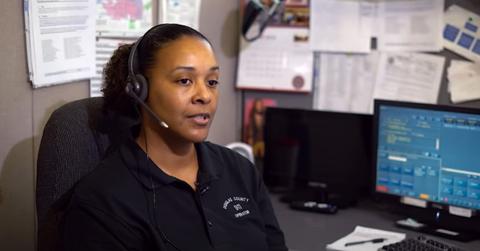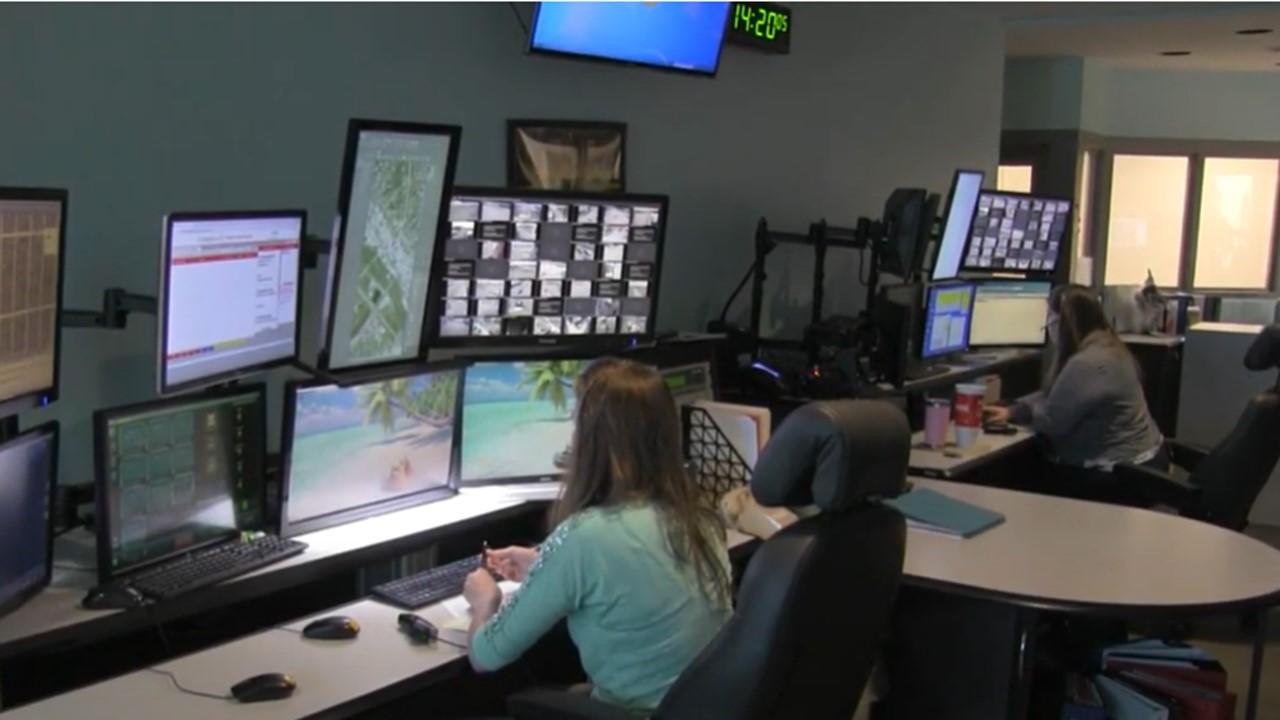911 Dispatchers Provide Crucial Help During Emergencies — Pay Is Surprisingly Low
The job of a 911 dispatcher often involves long hours and lots of stress for low pay. How much does a 911 dispatcher make? Here's what we know.
Feb. 28 2023, Published 2:26 p.m. ET
Municipalities across the country are struggling with a shortage of 911 dispatchers. The job of a 911 dispatcher often involves long hours and lots of stress for low pay.
“The job itself is difficult,” Kevin Pond, director of the Department of Emergency Communications in Henrico County, Va., told the local NBC affiliate news station. “We are an equal public safety partner, so it’s 24/7, long hours, we work night shifts just like everyone else, and the stress of the job can really be cumulative. With an increased call volume and the calls these individuals have to take and hear every day, it can be really stressful.”
How much does a 911 dispatcher make?
According to Comparably, the average annual salary for a 911 dispatcher in the U.S. is $39,421. That equates to just under $19 per hour for a dispatcher who works 40 hours per week full-time. However, some in the field can make close to $60,000.
Where are 911 dispatchers paid the most?
Data from Indeed.com shows that the 911 emergency dispatchers are paid the highest in the following five cities:
San Francisco, Calif. – $44.76 per hour ($93,100 per year for full-time)
Portland, Oreg. – $32.22 per hour ($67,018 per year FT)
Littleton, Colo. – $29.27 per hour ( $60,882 per year FT)
Richland, Wash. – $29.18 per hour ($60,694 per year FT)
Fresno, Calif. – $28.33 per hour ($58,926 per year FT)

What do 911 dispatchers do?
A 911 dispatcher works closely with the police, fire, and emergency medical teams (EMTs) within a city or county public safety department. The role of the 911 dispatcher is to answer emergency calls to 911 and send, or dispatch, the police, firefighters, or EMTs to the situation.
The 911 dispatcher gets the caller's name, the address of the incident, and the details on the emergency situation. With this information, they can determine what emergency crews to send to the location.
The job of a 911 dispatcher can be very stressful and mentally taxing. Most 911 calls report fires, crimes, illnesses, or injuries, and the dispatcher needs to get all the relevant information from callers who are often in distress. Sometimes, panicked callers can be verbally abusive to the dispatcher.

It can also be stressful being on the other end of a phone call with a person experiencing a major trauma. Imagine being on the phone with someone who had been shot and is dying as you're trying to find out where they're located so you can send help. 911 dispatchers have to be prepared for this kind of emergency situation when they go into the field.
What are the training requirements for a 911 dispatcher?
To become a 911 dispatcher, you must have at least a high school diploma or GED. You should also have some experience with transcription and word processing. Depending on the state you plan to work in, you may also be required to complete a certification or training program.

Training programs for 911 emergency dispatchers usually include information on the following:
First aid/CPR/AED
Stress management
Suicide intervention
Terrorism
Domestic violence
Emergency medical dispatch
Hazardous materials
TeleTYpe (TTY)


